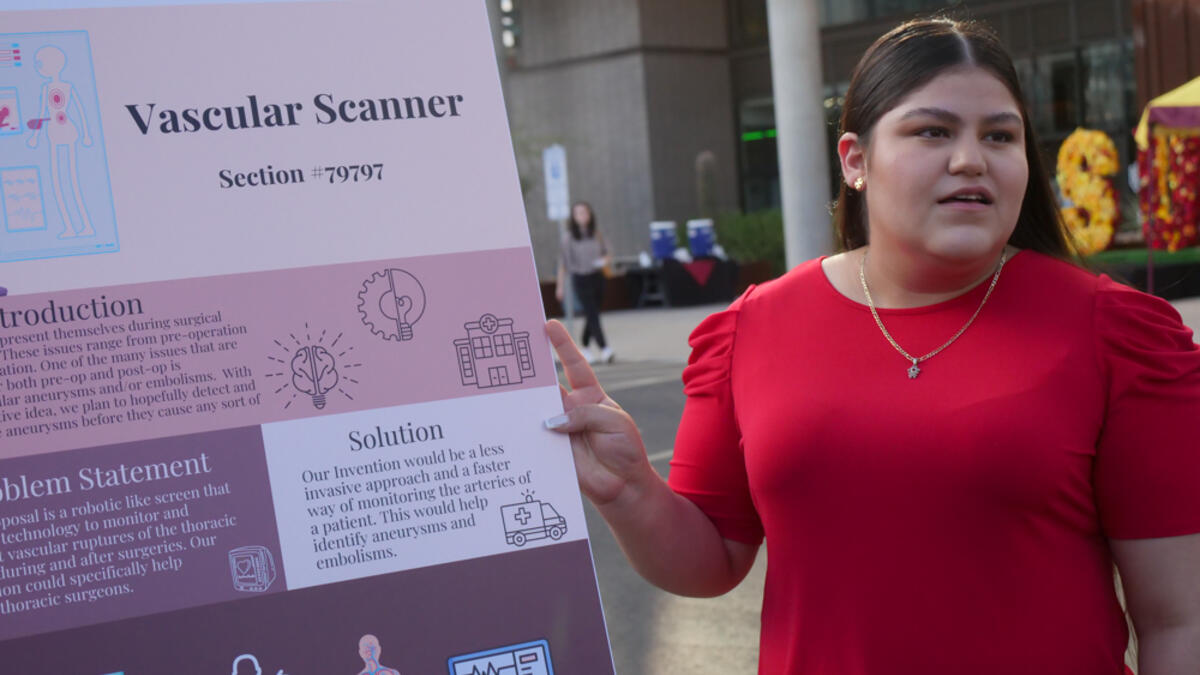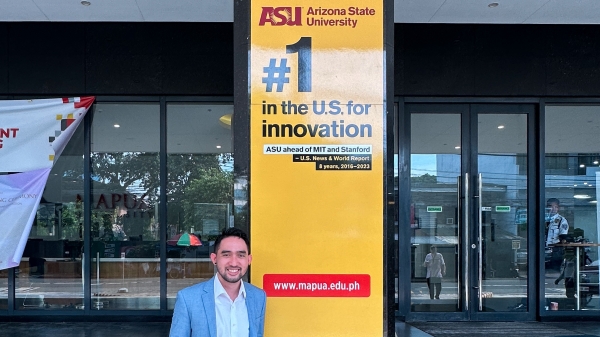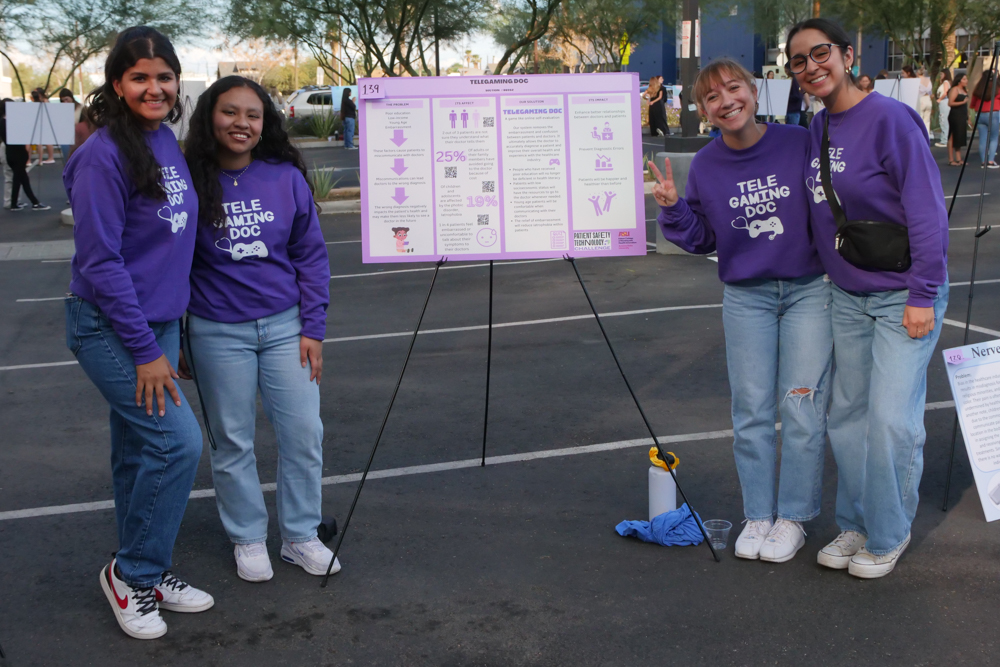First-year students pitch ideas to improve patient safety

Edson College first-year students present their ideas to improve patient safety at the Health Innovation Exhibition on Friday, Nov. 17. Photo courtesy the Edson College of Nursing and Health Innovation
How would you tackle patient safety issues in health care?
That was the question asked of nearly 700 first-year students at Arizona State University's Edson College of Nursing and Health Innovation this fall. Their responses would serve as the catalyst for a semester-long project that culminated in mid-November at the Health Innovation Exhibition.
Falepaini Otukolo and her teammates Cecilia Ortiz and Abigale Fajardo landed on an idea to tackle alarm fatigue.
“We learned that in the ICU, alarms can go off as many as 700 times a day. Imagine your iPhone alarm going off 700 times. That’s a lot for nurses,” she said.
Their solution was to program a smartwatch to receive the alarms via a color-coded system with only some auditory alarms so nurses wouldn’t get overwhelmed.
It was one of five ideas to win the top poster prize in its category.
“I had an enjoyable time through the process. They were good teammates,” Fajardo said.
This was the first year that the exhibition had students focus their innovative efforts on a singular issue in health care. The decision was made thanks to a partnership with the Patient Safety Technology Challenge and ASU's Health Entrepreneurship Accelerator Lab (HEALab).
"This is our seventh year doing the competition, but the first partnering with the Patient Safety Technology Challenge," said Michael Collins, director of Health Innovation Programs at Edson. "The five categories they provided were broad enough to allow students to identify a unique problem within the category, and then use technology in an innovative way to create a solution. All of the groups I visited had some really well-thought-out solutions."
This partnership also provided funding to award the grand prize-winning team $1,000 and the other four top teams $500 each.
With these incentives and parameters in place, students then narrowed their ideas even further to align with one of these five categories:
Surgical procedure error.
Diagnostic error.
Medication error.
Patient care.
Infection.
During the exhibition, students presented their posters to judges who picked the top team from each category. Each of the top teams then pitched their poster, and a grand prize winner was selected.
The student team "Telegaming Doc" won the top prize at the Health Innovation Exhibition. Photo courtesy the Edson College of Nursing and Health Innovation
Sara Peermohammed, Margo Johnson, Elena Zazueta and Karla Camarillo made up the grand prize-winning team. Their idea, “Telegaming Doc,” seeks to address the miscommunication between patient and provider that can lead to poor care through a game-like, online self-evaluation.
“I was always super passionate about health care and I’ve had bad experiences with it. Like, I’ve been on the wrong medications. So this is just something that I was passionate about,” Johnson said.
As the grand prize winners, the group will split the $1,000 prize.
No one was more surprised than the Telegaming Doc creators that they won the whole thing.
“We started out with this idea, and it was really small, and now to expand it and win, it’s just surreal,” Peermohammed said.
More Health and medicine
College of Health Solutions medical nutrition student aims to give back to her Navajo community
As Miss Navajo Nation, Amy N. Begaye worked to improve lives in her community by raising awareness about STEM education and…

Linguistics work could improve doctor-patient communications in Philippines, beyond
When Peter Torres traveled to Mapúa University in the Philippines over the summer, he was shocked to see a billboard promoting…

Turning data into knowledge: How Health Observatory at ASU aims to educate public
This is how David Engelthaler described his first couple of months on the job as executive director of the Health Observatory at…
